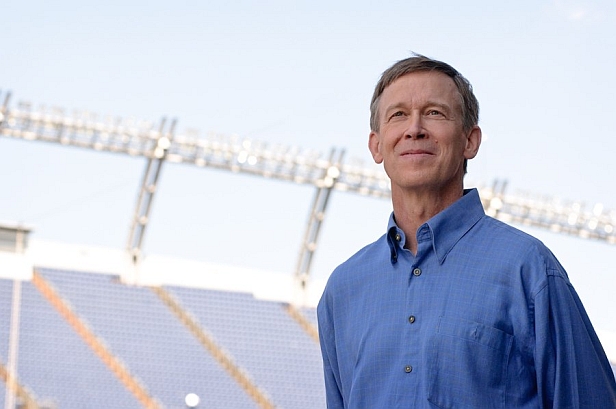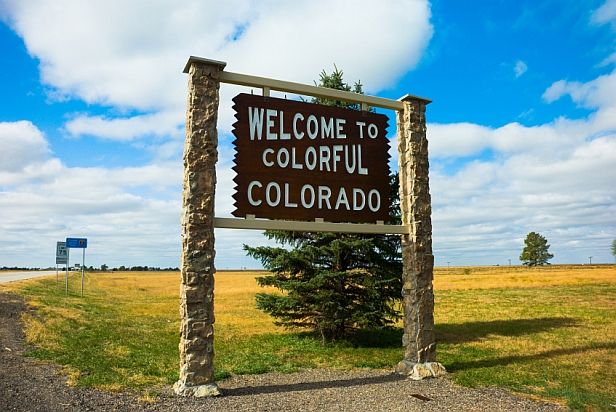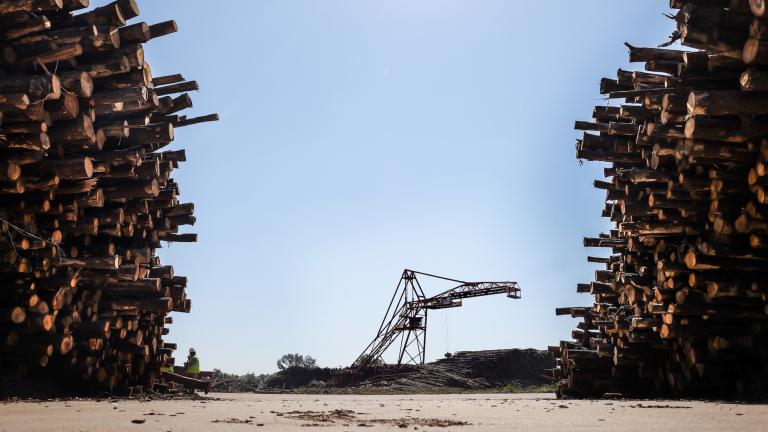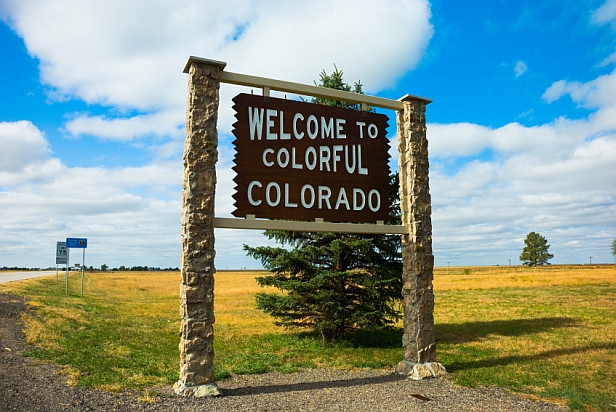 Bicycling doesn’t get a lot of attention in election campaigns, but Colorado governor candidate Dan Maes (R) ensured a cycle-focused news cycle in early August when he suggested Denver’s new bike-sharing program was a step toward “converting Denver into a United Nations community.”
Bicycling doesn’t get a lot of attention in election campaigns, but Colorado governor candidate Dan Maes (R) ensured a cycle-focused news cycle in early August when he suggested Denver’s new bike-sharing program was a step toward “converting Denver into a United Nations community.”
“This is bigger than it looks like on the surface, and it could threaten our personal freedoms,” Maes, a first-time political candidate and surprise winner of the Republican primary, said at a campaign rally.
He was responding to his Democratic opponent, Denver Mayor John Hickenlooper, who launched the nation’s largest bike-sharing program on Earth Day this year. Maes told The Denver Post that at first he thought transit and environmental initiatives were harmless. Then he realized “that’s exactly the attitude they want you to have.”
The comment highlights the stark choice Colorado voters face in their gubernatorial election this fall. Hickenlooper is running on his record as mayor of Denver, where he has promoted biking, walkability, and public transportation. Maes evinces a Tea Party suspicion of government action and a fealty to dirty-energy producers, warning on his website that oil and gas drilling and mining are under threat from “bureaucratic regulations” imposed “in the name of the politically correct new energy economy.” He defied an unusual push from the Republican Party to get him to drop out of the race and let a more “viable” candidate step in. A third-party candidate, Tom Tancredo, is creating still more headaches for Republicans by threatening to split conservative votes; he has spoken about little besides immigration since jumping into the race several weeks ago.
There’s plenty at stake in shaping the state’s energy landscape. In 2004, Colorado became the first state to pass a voter-approved renewable-electricity standard, requiring that private utilities generate a 10th of their power from clean sources. This spring, the state bumped that standard up to 30 percent, the second-most-ambitious in the nation (behind California).
The state has seen a surge of clean-energy investment in recent years, with Vestas, Siemens, AVA Solar, and dozens of other wind and solar manufacturing companies opening up shop under the encouragement of current Gov. Bill Ritter (D), who released a climate action plan in 2007. “Clean technology was like a safety net that kept us from falling into the abyss,” said the head of the Metro Denver Chamber of Commerce. Yet oil and natural-gas drilling remain important industries on the state’s western slope, as made clear by a recent flareup over a review of drilling rules.
Let’s take a look at where the candidates stand.
John Hickenlooper
 HickenlooperPhoto: Jeffrey Beall via FlickrHickenlooper lists energy among the top three issues on his website, but calls himself “agnostic” when it comes to choosing particular sources. He speaks of making the state a clean-energy model for the country. At the same time, as a former petroleum geologist, he understands the oil and gas industries’ needs — he gave a nuanced assessment of new drilling regs in a recent op-ed.
HickenlooperPhoto: Jeffrey Beall via FlickrHickenlooper lists energy among the top three issues on his website, but calls himself “agnostic” when it comes to choosing particular sources. He speaks of making the state a clean-energy model for the country. At the same time, as a former petroleum geologist, he understands the oil and gas industries’ needs — he gave a nuanced assessment of new drilling regs in a recent op-ed.
He’s stressed the need to act on climate change as a responsible “insurance” policy, but when speaking at a rural electric association meeting earlier this year, he said: “I get in trouble every time I say this, but I’m not 100 percent absolutely sure that climate change is occurring at the rate that some people fear it is and is going to be as catastrophic.”
Was that a shameless appeal to climate-skeptical rural voters?
“Running statewide is different than being mayor of Denver,” said Pete Maysmith, executive director of Colorado Conservation Voters. “Politics being politics, there are always calculations. Having said that, I think that’s kind of the way he approaches things — with skepticism but also the idea that we still need to get things done. It hasn’t been a skepticism that leads to paralysis and inaction.”
One question is whether Hickenlooper would push to strengthen the renewable-energy standard — perhaps by applying it to the rural co-ops and municipal utilities that are exempted from the new 30-percent-by-2020 standard. Pam Kiely of Environment Colorado argues that strong leadership from the new governor will be needed to make progress on the issue. “People don’t want to go backwards,” she said. “The question is, how aggressively are we going to continue to move forward?”
On transportation, Hickenlooper’s record is clearer. The bike-sharing program, for all of Maes’ concern, doesn’t use local tax funding, running instead off a $210,000 federal stimulus grant and fees that users pay. Hickenlooper’s much bigger project has been FasTracks, a $6.5 billion extension of Denver’s rail and bus network into the suburbs, which has proceeded slowly amid funding uncertainty. Thirty-two mayors in the metro area reached consensus on this plan, and Hickenlooper touts his success as a coalition-builder as something he’d bring to the governor’s office.
He has also raised the question, “How do we wean ourselves off automobiles?” — although it got him in trouble with auto dealers.
(Read a Grist interview with Hickenlooper on his environmental record.)
Dan Maes
 Dan MaesMaes has a simple prescription for the oil and gas industry: remove regulatory safeguards and the number of jobs will rise. He blames regulation for the drop in gas-drilling jobs over the last several years, although industry executives have said falling prices were the cause. He’s leveled stronger criticism at the Clean Air-Clean Jobs Act passed by the state this year, which could lead to the shuttering of several coal plants, attributing it to Gov. Ritter’s “green agenda.”
Dan MaesMaes has a simple prescription for the oil and gas industry: remove regulatory safeguards and the number of jobs will rise. He blames regulation for the drop in gas-drilling jobs over the last several years, although industry executives have said falling prices were the cause. He’s leveled stronger criticism at the Clean Air-Clean Jobs Act passed by the state this year, which could lead to the shuttering of several coal plants, attributing it to Gov. Ritter’s “green agenda.”
In a July 27 public radio interview, he again criticized the governor’s “personal agenda” in backing a renewable energy standard, unaware that it was first passed by voters.
“I guess you’ll have to refresh me,
” he said. “If the people of Colorado voted for it, then it’s critically important that we support that”
Said Maysmith: “I don’t know how you don’t know that [it was passed by voters] and then effectively lead the state forward in thinking about energy solutions for tomorrow,”
Tom Tancredo
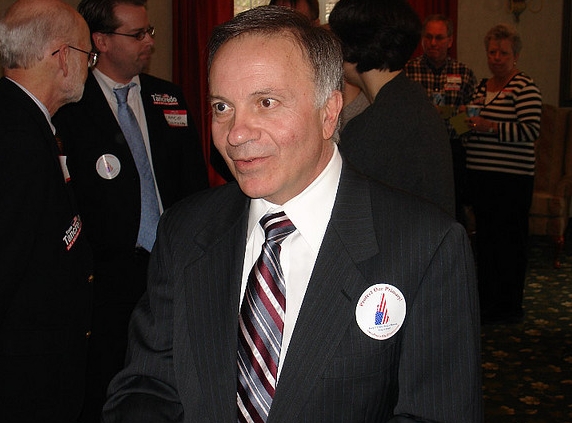 TancredoPhoto: Victory NH via FlickrTancredo, the former Republican House member and presidential candidate, joined the race suddenly in late July as an American Constitution Party candidate and then suggested that both he and Maes drop out and let the state GOP appoint a stronger candidate. Maes declined that offer, and Tancredo’s selection of a staunchly conservative running mate suggests he’ll challenge Maes for votes from the right wing.
TancredoPhoto: Victory NH via FlickrTancredo, the former Republican House member and presidential candidate, joined the race suddenly in late July as an American Constitution Party candidate and then suggested that both he and Maes drop out and let the state GOP appoint a stronger candidate. Maes declined that offer, and Tancredo’s selection of a staunchly conservative running mate suggests he’ll challenge Maes for votes from the right wing.
On his website, Tancredo promises to “promote the responsible development of all sources of energy, including wind, solar, hydroelectric, oil, natural gas, coal and nuclear power.”
Yet in the campaign he’s shown little interest in energy issues, which matches his record as a 2008 presidential candidate. “It’s immigration, immigration, immigration, immigration,” said Maysmith. “And then, after that, we should probably talk about immigration, if you’re Tom Tancredo.”
Do you know more about this race? Tell us in comments below. And find out about other races in our Gubernatorial Tutorial special series.
